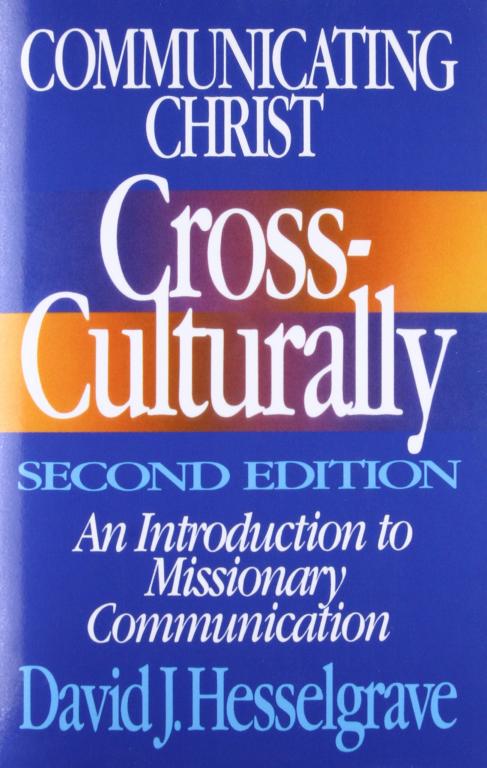
Chris Flanders gave a game-changing presentation on the role of guilt and shame in evangelism at the 2018 conference of the Evangelical Missiological Society. Here’s why.
According to Christian “common sense,” successful evangelism must satisfy an important requirement. It must evoke a sense of guilt in the minds of hearers. This message abounds in missionary literature, which emphasizes the importance of guilt through the study called “elenctics.”
Are we guilty of defining “elenctics” wrong?
This strange sounding word stems from the Greek-root ελεγχω. In Homer, it carries the idea “to bring to shame.” Renowned missiologists, like David Hesselgrave and Johan Bavink, acknowledge this background. Yet, for some reason, Hesselgrave asserts, “the term underwent a certain change so that the emphasis fell upon the conviction of guilt, the demonstration of guilt.”[1] He claims the word’s meaning in the New Testament is “entirely ethical and religious.”
Hesselgrave apparently seems the think “shame” is not an ethical and religious word in classical Greek. People like Hesselgrave and Johan Bavink are giants in the field of missiology; their influence extends upon generations of missionaries.
How has this perspective shaped the work of missionaries around the world? In a word, the fundamental goal of evangelism is to evoke a feeling of guilt for wrongdoing as a way of hastening repentance. In Hesselgrave’s own words,
“Only those who recognize their guilt will value the payment made on the cross; only those who value the cross will embrace its Savior; and only those who embrace the Savior will find the ultimate healing.”[2]
What are we to make of this?
Flanders’ Challenge to Conventional Thinking
Flanders respectfully pushes back on this understanding of elenctics and evangelism. As he points out, writers like Hesselgrave base their view of guilt and shame on outdated anthropology.
Drawing from earlier researchers on shame (e.g., Ruth Benedict), Hesselgrave assumes than a shame-laden person is “so preoccupied with the approval or disapproval of others [such] that he cannot consider the requirement of God.”[3] By contrast, he says guilt refers to an anxiety one feels in the conscious for wrongdoing. This impression of shame and guilt lingers today. In various places (such as here), I and others have provided more developed treatments of shame and guilt.
Flanders rebuts Ruth Benedict’s mistaken claim that “True shame cultures rely on external sanctions for good behavior, not, as true guilt cultures do, on an internalized conviction of sin.”[4] He rightly explains that one can be convicted of wrong-doing both by shame and by guilt. Conviction of sin does not necessarily require guilt-feelings; it could very well manifest shame feelings.
Why have people so forcefully laid stress on a guilt experience?
Certainly several reasons could be given. One is historical. Flanders looks back to the various revivalist accounts in the 1700-1800s. Time and again, evangelistic efforts and Christian conversation were marked by a sense of feeling guilty. That shift in focus has had an incredible influence on missiological thinking ever since.
Should we be ashamed?
Flanders then considers the meaning of ελεγχω-related words in the Bible. One common translation of ελεγχω is “to convict.” Around minute 17:40, he digs deeper to consider what all this word entails. In English, “convict” carries legal connotation; but we are more concerned with understanding the Greek.
The word’s earliest meaning conveyed “to pull off the mask, to expose.” Obviously, this is shame-laden language. In Ephesians 5:11, 13, the ESV picks up on this connotation, translated ελεγχω as “expose.”
“Take no part in the unfruitful works of darkness, but instead expose them.” (Eph 5:11)
“But when anything is exposed by the light, it becomes visible.” (Eph 5:13)
Likewise, in John 3:20, Jesus says,
“For everyone who does wicked things hates the light and does not come to the light, lest his works should be exposed.”

In 1 Timothy 5:20, Paul’s use of ελεγχω closely aligns with shame.
“As for those who persist in sin, rebuke [ελεγχω] them in the presence of all, so that the rest may stand in fear.”
Shame drives people into hiding. Shame routinely entails a fear of rejection and exposure by or in front of other people.
Two other passages are illuminating. Luke 3:19 resembles the passages above. Speaking of the John the Baptist’s ministry, Luke writes,
“But Herod the tetrarch, who had been reproved [ελεγχω] by him for Herodias, his brother’s wife, and for all the evil things that Herod had done.”
By simply, Herod did not like be called out by John, who put him to shame.
Acts 19:27’s use of the root ελεγχω is particularly interesting.
“And there is danger not only that this trade of ours may come into disrepute [ἀπελεγμός] but also that the temple of the great goddess Artemis may be counted as nothing, and that she may even be deposed from her magnificence, she whom all Asia and the world worship.”
I have highlighted just a few significant points from Flander’s EMS talk. I think he shows how an entire subdiscipline of missiology has missed the focus on a “shame-experience” within the Bible.
Obviously, shame is not the only response one can have when hearing the gospel. However, shame is far more significant for evangelism than we’ve thought.
[1] Communicating Christ Cross-Culturally, 2nd ed. p. 582.
[2] David Hesselgrave, “Missionary Elenctics and Guilt and Shame,” Missiology. Vol 11, no. 4 (1983): 482.
[3] Hesselgrave, “Missionary Elenctics,” p. 480.
[4] Benedict, The Chrysanthemum and the Sword: Patterns of Japanese Culture.1989, p. 223














